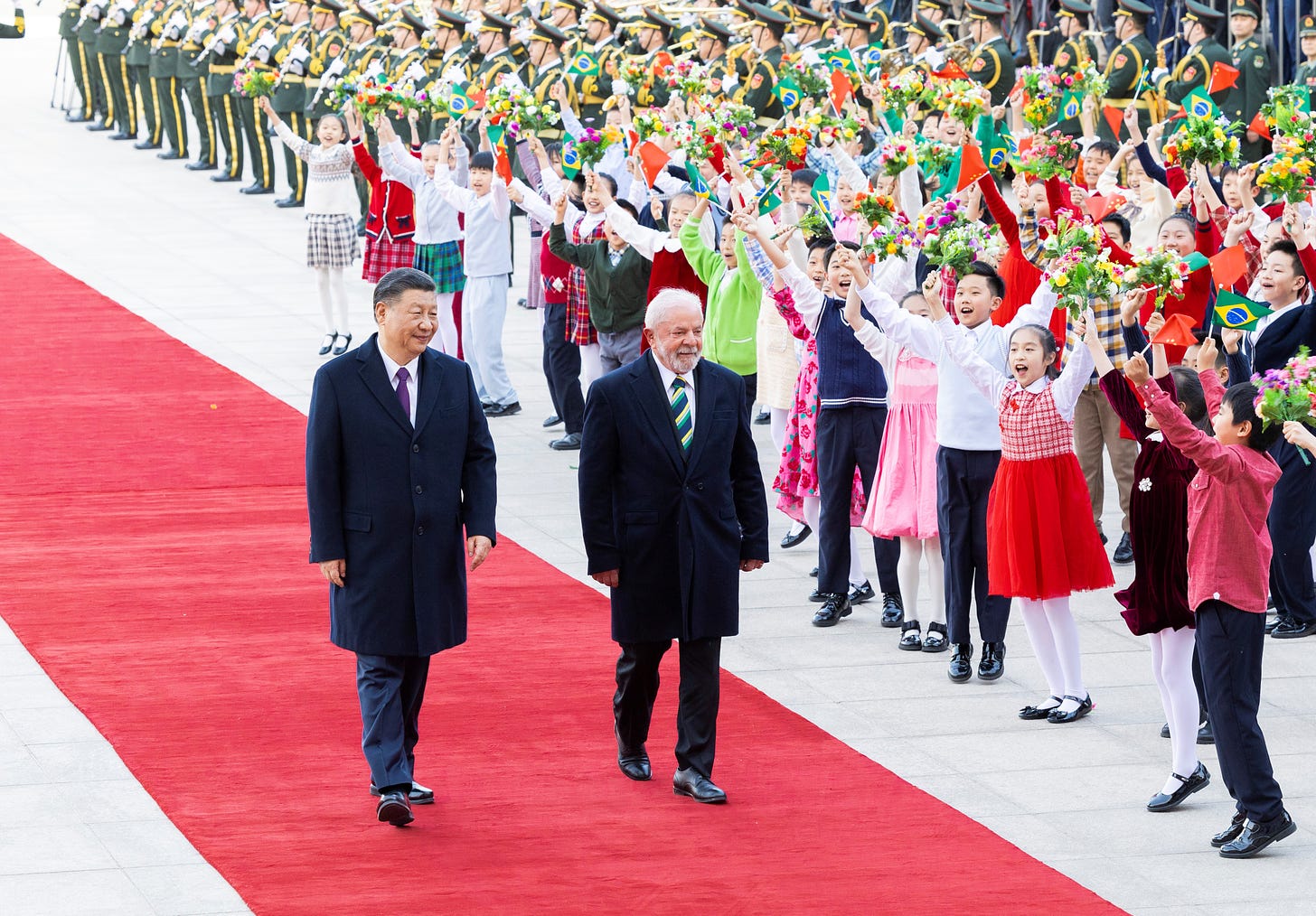TL(PM) DIGEST: Xi Jinping goes a courtin'
Plus Treasury Secretary Yellen calls for constructive engagement with Beijing, regional powers dip their toes into Sudan's nascent civil war, and a new taxonomy of American voters

1. Janet Yellen calls for constructive relationship with China
What happened? Treasury Secretary Janet Yellen today outlined the Biden administration’s approach to China calling for a “constructive” and “healthy” economic relationship with America’s chief strategic rival even as she defended efforts to protect U.S. national security and industrial interests.
Why does it matter? As tensions with the Chinese government continue to rise and the U.S. relationship with Beijing becomes colder and more distant, Yellen underscored the need for America to remain engaged in a constructive manner with China. At the same time, however, she also wisely defended steps by Biden to limit sensitive technology exports to China and invest in America’s own manufacturing capacity.
TLP’s take: Speeches calling for engagement with China may be nice. But the United States can ill afford to ignore the reality of the Chinese government’s aggressive and coercive approach to geopolitics, whether in supporting Russia’s war on Ukraine, undermining global trade rules, or taking an increasingly hostile position on Taiwan.
Beijing will continue to act as it sees fit to advance its own economic and security interests in the world—and so should the United States.
2. Beijing snubs U.S. as it courts other nations
What happened? Chinese dictator Xi Jinping has not-so-subtly courted a variety of nations in recent weeks while continuing to refuse American calls to re-open diplomatic dialogue and dial down bilateral tensions. Chinese state officials continue to blame the United States entirely for every problem the two nations have with each other, effectively demanding the United States accede to Beijing’s positions in order for talks to begin again.
Why does it matter? Beijing clearly hopes to drive wedges between the United States and its long-standing allies and partners, and appears to have at least partly succeeded—French President Emmanuel Macron, for instance, appeared to give Xi exactly what he wanted in terms of distancing Europe and America, while Brazilian President Lula da Silva’s own state visit gave him the opportunity indulge in Cold War-era leftist complaints about the United States. At the same time, Beijing refuses to reciprocate America’s own attempts to revive constructive dialogue.
TLP’s take: Western foreign policy pundits and commentators have taken just about every opportunity in recent months to browbeat the United States into re-engaging with the Chinese government, but it’s become apparent that America wants to talk with Beijing more than Beijing wants to talk with America. When it comes to diplomacy, it takes two to tango—and right now the Chinese government doesn’t want to dance.
3. Regional powers begin to intervene in Sudan
What happened? The Wall Street Journal reports that Egypt’s military and the Libyan militia of would-be dictator Khalifa Haftar have begun to intervene on opposite sides of Sudan’s nascent civil war. Egypt previously deployed fighter jets and pilots to back the Sudanese military, while Haftar has flown in military supplies to support the Rapid Support Forces militia.
Why does it matter? Regional powers and warlords are quickly being sucked into Sudan’s violent struggle for power—with some of those who were previously aligned elsewhere (like Egypt and Haftar) now supporting opposite sides in the conflict. The conflict continues to slide increasing out of control, making diplomacy to stop it from escalating further all the more crucial.
TLP’s take: While Secretary of State Blinken has spoken with heads of both factions and called for an immediate cease-fire and the U.S. military begins planning to evacuate some of the 19,000 or so Americans in Sudan, the United States looks set to return to the old foreign policy stand-by of slapping economic sanctions on the warring parties. But it’s not at all clear that sanctions will work—and work fast enough—to keep Sudan from slipping further into chaos and sucking regional powers into its conflict.
4. Five groups of voters—but only two political parties
What happened? Political scientists Graham Wright of Brandeis University and Sasha Volodorsky of Northeastern University presented new research showing how Americans’ complex views on public policy do not fit into the typical left and right ideological spectrum.
Why does it matter? Although some percentage of voters fall neatly into consistent liberal Democratic or consistent conservative Republican camps, Wright and Volodorsky say three other groups of Americans do not.
There are two types of communitarians, for instance: one group that is liberal on economics and redistribution, moderate-to-conservative on social issues, but wants the government to do more to address racial discrimination, and another that’s liberal on economics and redistribution, conservative on moral issues, and extremely conservative on immigration and racial issues. The third outlier group is more traditionally libertarian with conservative views on economic issues, liberal views on social issues, and more conservative ideas on racial issues.
TLP’s take: As the parties pursue hardline ideological stands that fit the perspectives of a small proportion of voters, other Americans tune out and reject the two parties that fail to adequately represent their views. Although some structural changes to allow additional parties would be warranted, the difficulty of executing these maneuvers means that the parties themselves must adapt the politics and policies they offer to better appeal to these different types of voters—a true big tent politics.
Just one more thing…
When asked for an endorsement deal by disgraced crypto-king Sam Bankman-Fried’s FTX, rock star Taylor Swift did her due diligence—and wound up being the one celebrity whose representatives asked whether FTX was peddling unregistered securities.






